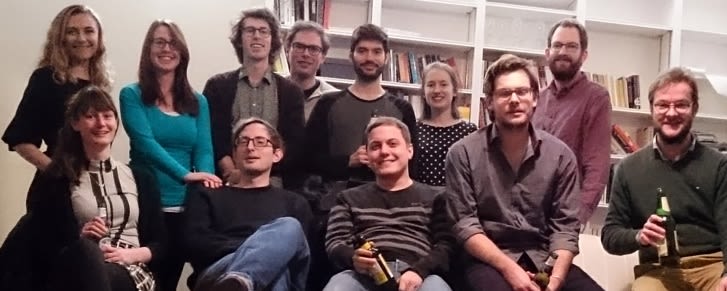Prof. Mark Stokes

Our everyday view of the world is necessarily biased: we focus our attention on information that is most relevant to our current goals and ignore behaviourally irrelevant information. Without such bias, we would be lost in a world of information overload, unable to accomplish even the simplest tasks.
Research in the Attention Group explores how the brain controls these biases to streamline processing for adaptive behaviour. In our experiments, we measure and disrupt human brain activity with high temporal and spatial resolution using magnetoencephalography (MEG), functional magnetic resonance imaging (fMRI) and transcranial magnetic stimulation (TMS). Working with our collaborators in Oxford and further afield, we also explore brain activity recorded directly with intracranial electrodes. By exploiting convergent methodologies, we are better able to overcome specific limitations inherent to any single approach.
The results of our research will provide a richer understanding of the fundamental neural mechanisms of attention, and how they influence perception and decision-making. Our research also explores how these perceptual biases shape memory formation, and conversely, how our memories, in turn, create new bias patterns. Finally, we are also exploring how individuals differ in their ability to focus attention on behaviourally relevant information, and/or suppress distractions. A clearer understanding of how individuals differ in controlling attention will provide a foundation for further research into how cognitive factors could play a role in neuropsychiatric models of depression and anxiety.
*News* (updated February 2020):
Welcome Mateus, who joins the lab as PhD student visitor!
Congratulations to Dante for passing his doctoral viva voce examination and for the birth of his adorable baby girl, Gala Isabel!
Congratulations to Darinka, who has won the prix solennels de la Chancellerie des universités de Paris 2019, category of Life Sciences!
Warmest congratulations to Darinka on the arrival of her sweet baby boy, Ilia Sébastien!
Andrea Bocincova will join our lab as post-doc. Welcome on board!
Congratulations Jake Stroud! Awarded the Wellcome Trust Fellowship!
Our warmest welcome to Emmeline! Congratulations MaryAnn Noonan on your beautiful baby girl!
Congratulations to Lev Tankelevitch! Dr Tankelevitch successfully passed his doctoral viva voce examination!
Congratulations Emilia Piwek! Accepted on to the Computational and Cognitive Neuroscience (CCN) Summer School
Congratulations to Michał Wójcik, who has been awarded the Clarendon Fund Scholarship in partnership with the Saven European Scholarship!
Congratulations Eleanor Holton! Eleanor will join the Wellcome Trust Doctoral Training Programme in Neuroscience!
Welcome to Ilenia Salaris, who will be working with us as Graduate Research Assistant!
Congruatulations Jasper Hajonides van der Meulen for being awarded a student travel award for VSS 2019!
Congratulations MaryAnn Noonan! Awarded the prestigious Academy of Medical Sciences grant and her recent paper on neural correlates of human social networks in Behavioural Brain Research
Congratulations Paul Muhle-Karbe! Awarded the Henry Wellcome Fellowship!
HOT OFF THE PRESS
Hot off the (pre-)press


